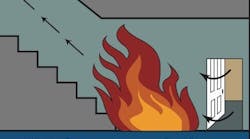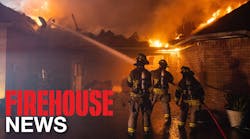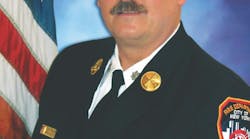The debacle of the response to Hurricane Katrina has resulted in the appointment of Chief R. David Paulison to be acting director of the battered Federal Emergency Management Agency (FEMA). It offers hope that the fire-rescue service finally will have a voice at the top level of the nation's disaster preparedness hierarchy. This also sends a signal that the Bush administration may have learned that emergency management should not be a dumping ground for political appointees; it requires leaders with real experience in managing large-scale emergencies.
Paulison, who has been serving as administrator of the U.S. Fire Administration, has the credentials to meet this formidable challenge. He is a veteran fire officer and was chief of Miami-Dade Fire Rescue when Hurricane Andrew destroyed a large part of South Florida in 1992. His department performed admirably in that crisis, but despite that experience, Paulison was not included in the planning that took place inside the Department of Homeland Security (DHS) when Katrina headed for the Gulf Coast. As this column reported many times in the past year, most of the responsibility for disaster preparedness had been taken away from the Fire Administration under FEMA Director Michael Brown, who was forced to resign his post.
FEMA and all levels of government, federal, state and local, failed to properly prepare for this catastrophe, despite early warnings that it was a killer storm. From all accounts, they were too little and too late in every phase of emergency operations, from evacuating the threatened areas to bringing in the personnel and resources needed to do the job. Their command and communications systems turned out to be non-existent or, in some cases, made the problems worse because of bureaucratic inertia, bungling and red tape. As President Bush admitted in his speech to the nation, "The system at every level of government was not well coordinated and was overwhelmed."
How could this happen after billions of dollars had been poured into homeland security programs to respond to acts of terrorism and other disasters? Part of the answer is that the people running DHS focused on terrorism and didn't give priority to other disasters, even though Secretary Michael Chertoff stated that DHS would be an "all hazards" agency. Most had never experienced a major emergency incident in an American city and looked down their noses when fire chiefs tried to explain that if you improve a fire department's ability to respond to every type of mass-casualty disaster, you also enhance its ability to cope with an act of terrorism.
Government officials ignored the warnings that came out of their own training exercises and based much of their planning on dangerous myths that firefighters knew were untrue. Everyone agreed that the Army and National Guard would be needed for a disaster of this magnitude, but we also knew from past experience that it would take too long for them to reach the scene in time to save lives. In reality, local fire departments are the true first responders and, in the first 72 hours after Katrina hit, firefighters and the U.S. Coast Guard did their best to save lives. Up and down the Gulf Coast, especially in and around New Orleans, local officials pleaded for federal and state help. They were told that it was "on the way", but nothing happened and many people died because the promised help was too little and arrived too late.
Also, to no one's surprise, state government became a bottleneck in getting help from the federal to the local level. In Louisiana, for example, there was no control under a unified incident command system and no statewide mutual aid plans. It's hard to believe that in this day and age those plans did not exist, but a respected Louisiana fire chief told me: "It wasn't a case of the system being broken. There was no system!" Still, thousands of lives were saved as fire departments helped each other on an ad hoc basis, improvising and filling in with equipment and firefighters as they were confronted with difficult rescue problems.
There are many lessons to be learned from this catastrophe and we can start by ignoring those officials who say we shouldn't play "the blame game." This is exactly the right time to play that game in order to learn everything that went wrong and who or what was responsible for making it go wrong. Hopefully, there will be an independent commission to investigate the response to Katrina and why it was a debacle. The Bush administration doesn't want it but, as we saw with the 9/11 Commission, they have a way of changing their minds when they feel the heat of public opinion.
For fire departments, at least one lesson is clear: determine whether your Plan A for mass-casualty disasters is up to date and ready to go. Then start working on Plan B, which is the one you will have to use when state and federal governments fail to deliver the help that was promised in Plan A.
Hal Bruno, a Firehouse contributing editor, retired as political director for ABC News in Washington and served almost 40 years as a volunteer firefighter. He is a director of the Chevy Chase, MD, Fire Department and chairman of the National Fallen Firefighters Foundation.





